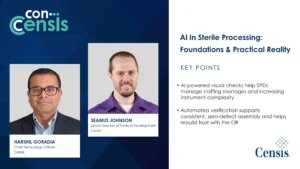High Costs, Low Margins, and Regulatory Hurdles Hinder Pharma’s Adoption of Advanced Manufacturing Technologies
The ongoing drug shortage crisis in the U.S. underscores a critical need for innovation in pharmaceutical manufacturing. As manufacturing issues, outdated technologies, and geopolitical risks contribute to shortages that impact patient care and elevate healthcare costs, the introduction of Advanced Manufacturing Technologies (AMTs) offers a beacon of hope. AMT technologies promise to enhance quality control and reduce production downtime, yet their adoption in generic drug production remains low despite obvious benefits.
Why is the pharmaceutical industry slow to adopt technologies that could revolutionize drug availability and cost?
Mike Tracy, a C-Level Healthcare Operations Strategist, dives into the complexities of integrating Advanced Manufacturing Technologies in drug production. Mike points out that while AMTs can drastically reduce bottlenecks in drug production, the significant initial investment and stringent regulatory landscape pose substantial hurdles.
“Every AMT has a high startup cost and generic drugs have very razor-thin margins to begin with. We’re not talking about a new drug that’s not already out in the market where you’re going to have a high margin and it makes sense to invest millions,” Tracy explains.
Article written by Sonia Gossai









